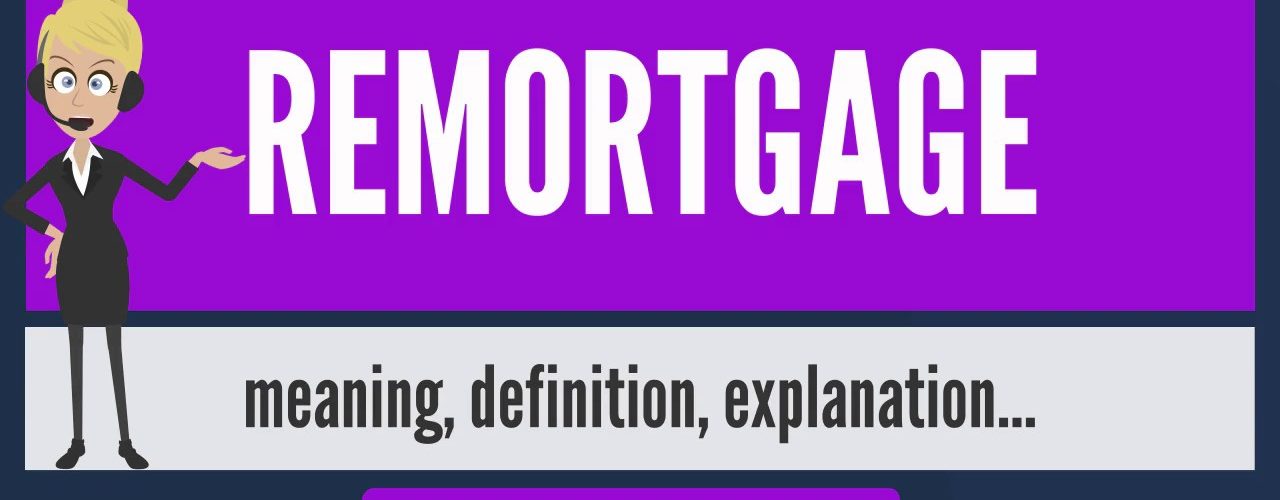Remortgaging is a beneficial way for many homeowners to change the terms of their existing payment plan so that they may free up equity in their homes, pay medical or other expenses down or simply to garner a better interest rate. The reasons are varied; however, the end result should equate to a financial benefit for the homeowner. Below are some of the common questions regarding remortgages, the process itself, benefits of remortgaging your home and potential problems you may encounter.
Contents
What is remortgaging?
Remortgaging is an effort generally made by a homeowner to change the current terms, including interest rates, payments and other details of his current home loan. While not all homeowners use the equity to consolidate credit card bills, medical bills or even college loans, the majority usually wish to cash out their equity for reasons such as these. There are those who don’t wish to cash out equity, but who are simply looking for a better interest rate, which equates to lower monthly payments.
Do I have to begin the process that includes all that paperwork again?
While there is paperwork that must be completed, odds are, it won’t be as exhaustive as the intiaial paperwork your were first required to provide. You will be required to obtain a current appraisal to determine your home’s worth at current market prices and some lenders will require other inspections as well.
Do I have to have my current mortgage paid down to a certain amount before I qualify for a remortgage?
That depends on your lender. Many require at least 20% available in equity before approving a consolidation remortgage. This varies between lenders, of course, but you should be sure of this before beginning the remortgaging process.
The Benefits
As discussed above, a bad credit remortgage offers many benefits, including the option of cashing out part or all of your home’s equity. Those funds can be used to pay off bills or even update or add on to your home. It may be you wish to add a nursery for that bundle of joy that you’re expecting in the near future or perhaps you wish to add a guest room; regardless of your reasons, a home remodel is always an excellent investment.
Other benefits include locking into a lower interest rate, especially if you’ve reverted to the lender’s standard variable rate. You might be able to negotiate a better deal and lower monthly payments.
Potential Problems
While remortgaging is usually an ideal solution for many homeowners, there are those times when it may not be the best option for you and your family. You’ll want to be sure you’ve addressed any problems so that your remortgaging efforts don’t become an unnecessary burden.
You may face an early repayment charge with your current lender. It’s also important to realize that while you won’t endure the paperwork and time as your initial mortgage required, there are still fees that you will be required to cover, including appraisal fees. While these fees can often be included in the adverse credit remortgage itself, it’s important to understand fully what is and is not covered.
There also is the risk that your property has decreased in value since your initial purchase. In rare cases, you might even discover that not only do you not have the equity you had anticipated, but that you’re actually in the negative. While this is always an upsetting discovery, it is also an important thing to know. Finally, if your credit scores have dropped, it may be that you won’t be able to negotiate a lower interest rate. Again, this can be a disappointing discovery; however, it’s always best to have a realistic approach to your finances, including your credit scores.
As always, you are encouraged to seek out advice and answers to your questions by knowledgeable people who are experienced and qualified to provide advice on a best remortgage. Remember, it is your financial future that’s at stake. Often, a debt remortgage is an excellent way to ensure that financial future.
Related Posts
- How to Reduce Mortgage Payments?
- How to Finance Home Improvements?
- How to Remortgage Your House?
- How to Remortgage?
<>



